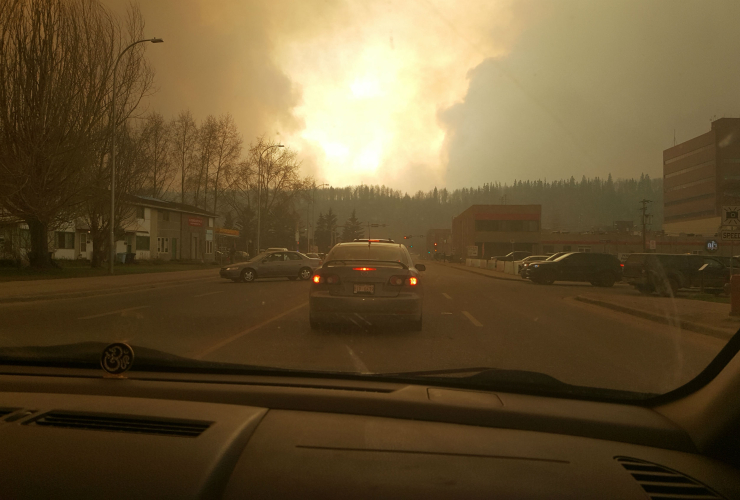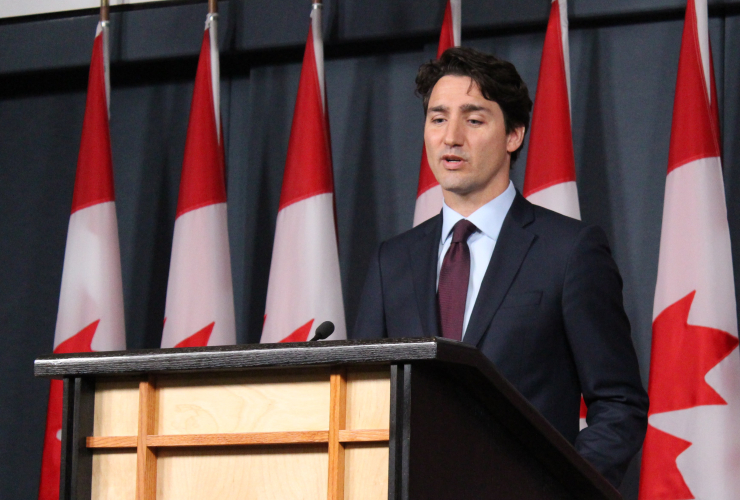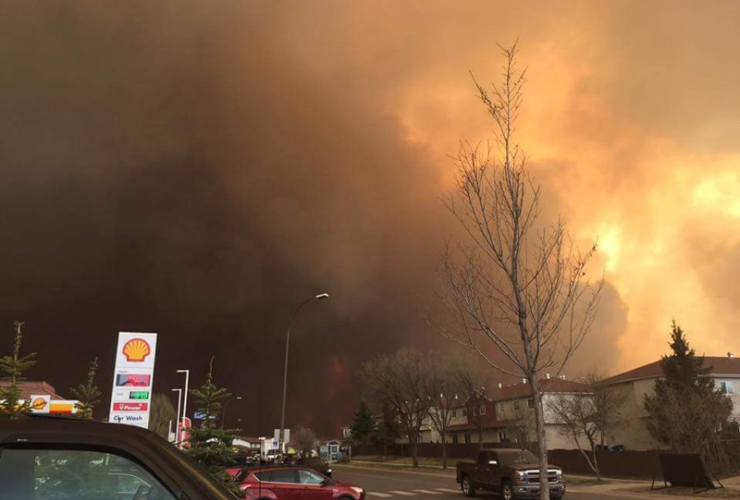The premiers of Ontario and British Columbia have both linked the Fort McMurray wildfire with global warming, while defending the importance of Canada's oil and gas industry.
In separate interviews that were broadcast over the weekend, Ontario Premier Kathleen Wynne and British Columbia Premier Christy Clark said it's time to talk about the climate change problem and find solutions.
"I think there are a lot of factors in this situation and we are very, very sad and we think of the people of Alberta," Wynne said during a French-language interview with Radio-Canada's weekly political show, Les Coulisses du Pouvoir.
"But we must talk about the causes and for me, climate change — extreme weather events — is the face of this problem and for me, it’s not about the economy, it’s not about industry, it’s an issue about the environment."
More than 80,000 people were forced to flee Fort McMurray last Tuesday — the largest evacuation in Alberta's history — after a raging wildfire that was first discovered two days earlier in a nearby forest attacked the city. Firefighters said they tried to stop it, but it spread rapidly due to unseasonably hot and dry conditions, combined with strong winds.
While U.S. outlets such as the Washington Post and the New Yorker have drawn links between the fire and global warming, in Canada, several media outlets and politicians have been discreet about discussing climate change in the past week.
Clark and Wynne's comments came after federal Green Party Leader Elizabeth May was criticized for making the same link a few days earlier last Wednesday. Prime Minister Justin Trudeau said those comments were not helpful, nor entirely accurate, in the wake of the disaster.
The wildfire reached Fort McMurray, the heart of Alberta's oil sands industry, after jumping over highways and rivers, causing major damage and destruction to more than 1,600 homes and other buildings. The inferno's rapid growth and intensity was also consistent with what scientists have identified as a pattern of devastating extreme weather disasters that are being driven by an increasing concentration of climate-warming carbon pollution in the atmosphere.
"There was once a time, when you talked about a once in a century fire or a once in a century flood. that was a long time ago," Clark said in an interview that aired Saturday on CBC's The House. "We had a huge fire in 2003 where we had to evacuate much of Kelowna, and since then, almost every year, not every year, but almost every year, it’s been getting worse. The climate is getting drier."
But while May said fighting climate change requires a transition away from fossil fuels "as quickly as possible," Wynne and Clark both defended the importance of the oil and gas industry to the Canadian economy.
"I believe in Canada we have a responsibility to work together," Wynne told Radio-Canada. "We have a lot of (Ontario) companies that have integrated with oil sands in Alberta. It’s a reality. Also if (Alberta says that) we need a pipeline... we have to work together to ensure that it’s secure and the environmental considerations are taken into account.
Clark also said that approving new liquified natural gas projects would be a key to delivering what she described as the "cleanest fossil fuel" that would help fight climate change. Some environmentalists have disputed this argument, pointing to fugitive methane emissions from LNG among other concerns.
In the meantime, Clark said in the radio interview that Canada's premiers and Prime Minister Justin Trudeau would have to deliver a comprehensive climate change plan at their next meeting in October.
“Clearly, these fires and these floods are the results, in part, of climate change in Canada," Clark told the CBC. "So we should be dealing, not just with how we fight climate change when we get together in October, we should also be talking about how we mitigate the effects of it and planning better for fighting forest fires is a big part of that for us.”
Clark also said that Canadians would also have to brace for more extreme weather events in the future.
"Provinces are just tinder dry and that’s true in the United States," Clark told the CBC. "You see it in California or Arizona. Climate change has had a tremendous impact on the country. So we just — we need to fight climate change. That’s part of the long term strategy. But in the medium term, we’ve got to have enough money, resources and planning to be able to fight these fires, because they’re not unusual events any more. And sadly, because of climate change, this has become a normal part of Canadians’ spring and summer, and we’ve just got to get used to it and deal with it.”








Comments